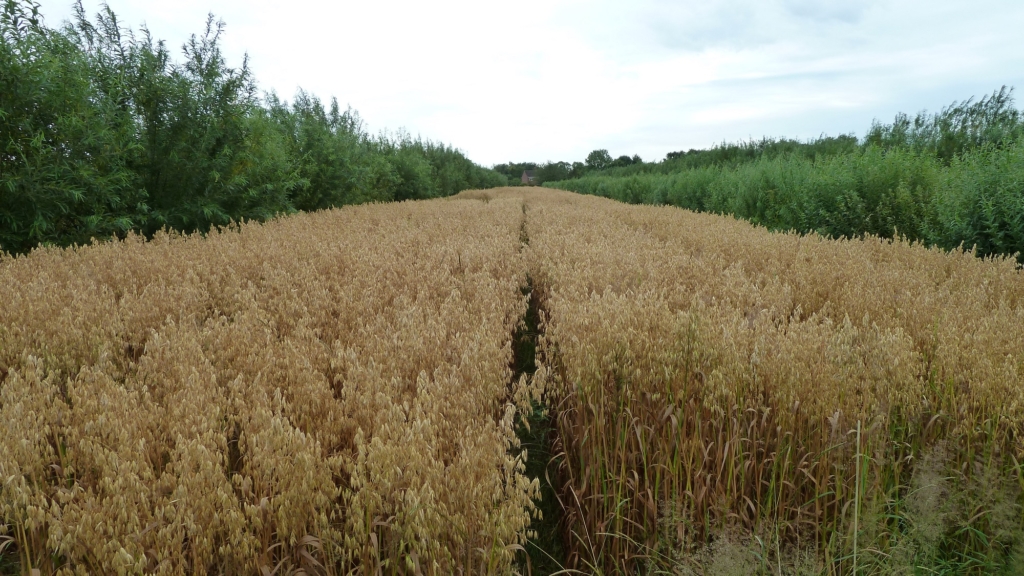A new paper written by Colin Tosh, Tom Staton, Ambrogio Costanzo and Will Simonson arising from the Agromix project has recently been published in the journal Agronomy for Sustainable Development.

Tosh CR, Staton T, Costanzo A, Simonson W (2024) Biotic stress and yield stability in English organic silvoarable agroforestry. Agron. Sustain. Dev. 44, 46 (2024). https://doi.org/10.1007/s13593-024-00979-z
Two main issues addressed in the paper are:
1) How do all the living things that trees bring with them (pests, pest natural enemies, flowering plants/weeds, plant disease) impact yield of the arable crop growing next to trees? Specifically, how do they impact arable yield stability to biotic stress such as pest or disease attacks. There has been loads of field work on this issue but basically no modelling work due to the difficulties in constructing models in this area. There has also been a lot of modelling and field work on biophysical competition between trees and crop (competition for light, nutrients , water). This is basically the first model to address how trees interact with crops from a biotic perspective.
2) Second issue is accessibility of system modelling to farmers and landowners. Despite all the progress that has been in computation and modelling, anyone who wants a custom model of their agricultural system still needs a team of researchers and a lot of data to do this. This paper outlines a procedure called GBRNM based on Boolean network modelling that simplifies the process through two main innovations. Firstly, components of the system can only be described in one of two states: high or low, good or bad etc. Secondly expert opinion can be used to parameterise the model along with any other data is available. This very simple modelling framework makes it relatively straightforward for anyone who can write a simple programme to create a custom model of an agricultural system.
Findings: The model predicts that the biotic interactions of trees do not increase stability of yield to biotic stress but they do improve yield overall. So if you introduce a stress even such as a pest outbreak, after it has ended yield falls to the same lower level with and without trees. However, year on year yield at harvest is generally higher in the presence of trees compared to without.
We also showed that crop yield is most sensitive to crop disease and relatively insensitive to the presence of pest natural enemies.
More generally, despite the simplicity of the model it appears to produce complex and realistic agroecosystem dynamics: natural enemies increase when pests increase. Crop disease increased when pests increase and all these effects have predictable impacts on crop yield.
Implications: The relationship between stress and yield stability shown here contrast with biophysical models and field work on biophysical competition. Here trees increase yield stability but lower its overall level. Our findings are opposite. The actual impacts of trees on crop yield will be a function of both biotic and biophysical effects and this needs to be worked out in future work.
The finding that crop yield is most sensitive to crop disease and relatively insensitive to the presence of pest natural enemies suggests that researchers may be barking up the wrong tree and there is a lot of work currently on trees and natural enemy provision for crops. Our model suggests that researchers should be focusing on how trees impact plant pathogen dynamics and there is almost no work in this area.
Blog by Colin Tosh: How I came to write: Tosh, C.R., Staton, T., Costanzo, A. et al. Biotic stress and yield stability in English organic silvoarable agroforestry. Agron. Sustain. Dev. 44, 46 (2024)
